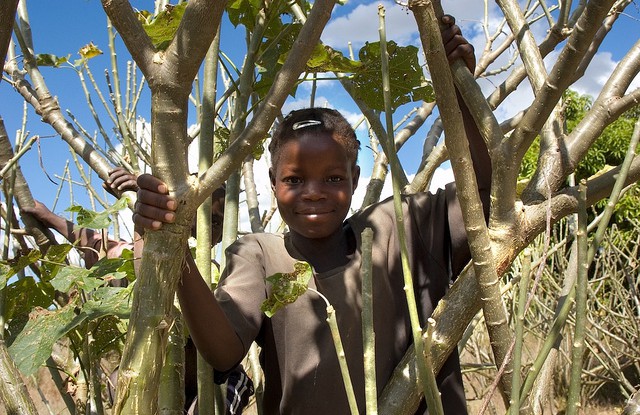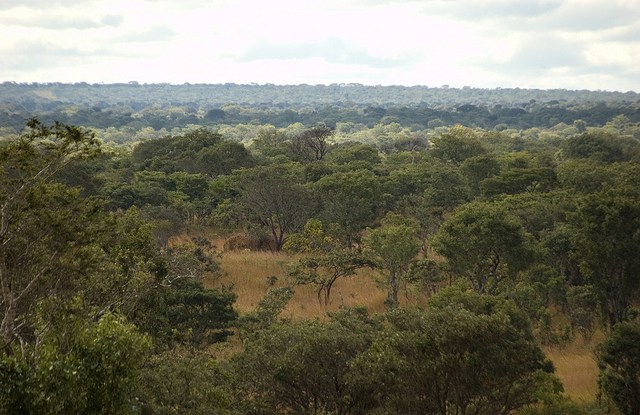Editor’s Note: This is an excerpt of an article originally published on ForestsClimateChange.org. Read it in full here.
LUSAKA, Zambia — Zambia’s media houses are ill-equipped or often uninterested in covering environmental stories, according to some of the country’s leading journalists, having a negative impact on the level of public scrutiny of policy decisions affecting the environment.
“There is lack of education among reporters on issues to do with climate change,” said Hellen Mwale, a reporter for the Daily Nation, one of Zambia’s most widely read newspapers. “Most of us lag behind when it comes to topical environmental stories. We often rely on press statements because we don’t have the initiative to generate our own ideas and … we feel stories to do with the environment are difficult.”
Journalists are misleading the nation with their current level of reporting, said Chief Ndake of the Nsenga-speaking people of eastern province of Zambia.
“Most stories concerning land or forestry issues in the country don’t normally carry information that addresses key issues surrounding our forests,” he said, referring to the political angle that most environmental stories in his region take. “It is common to see headlines such as ‘Politicians differ over mining in lower Zambezi or Chief in trouble for awarding land to a mine’,” he said.
Improving the quality and quantity of reporting on climate change in Zambia is exactly what a recent media workshop, organized by the Center for International Forestry Research (CIFOR), set out to achieve.
The tree has become prized in international markets and such, the illegal harvesting of the tree has skyrocketed
Held over two days in Nyimba district, eastern Zambia, 14 journalists from 12 media outlets were given the opportunity to interact with forestry and climate change scientists, national level policymakers and local people to learn more about climate change, Reducing Emissions from Deforestation and Forest Degradation (REDD+) and how the USAID-funded Nyimba forest project aims to inform Zambia’s national REDD+ strategy design to ensure the country’s dry forests are sustainably managed.
The media’s role in influencing policy change and public debate is crucial, said CIFOR scientist Davison Gumbo, citing a case where media reports on an environmental issue initiated debate between the government and the public.
“Zambia’s traditional communities have been using the Mukula tree (Pterocarpus chrysothrix) for hundreds of years – for firewood, medicine, dyes and facial powder and shelter. The tree has become prized in international markets and such, the illegal harvesting of the tree has skyrocketed.”
“The Zambian media raised the wider public’s awareness about the value of the Mukula tree so when illegal activities surrounding this species were reported, people understood why this was an important issue. The government’s response — increased patrols — were partially informed by media reports.”
We want you to share Forests News content, which is licensed under Creative Commons Attribution-NonCommercial-ShareAlike 4.0 International (CC BY-NC-SA 4.0). This means you are free to redistribute our material for non-commercial purposes. All we ask is that you give Forests News appropriate credit and link to the original Forests News content, indicate if changes were made, and distribute your contributions under the same Creative Commons license. You must notify Forests News if you repost, reprint or reuse our materials by contacting forestsnews@cifor-icraf.org.

